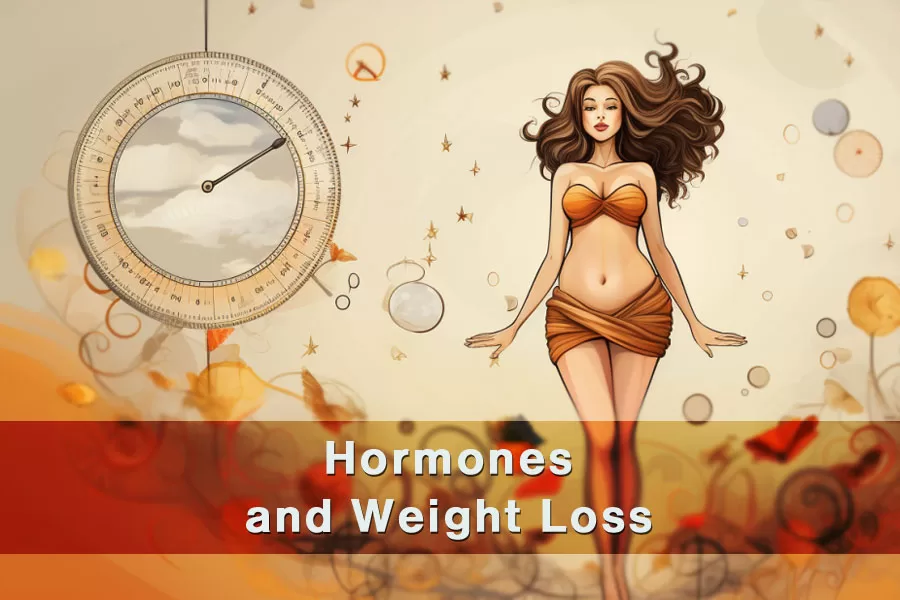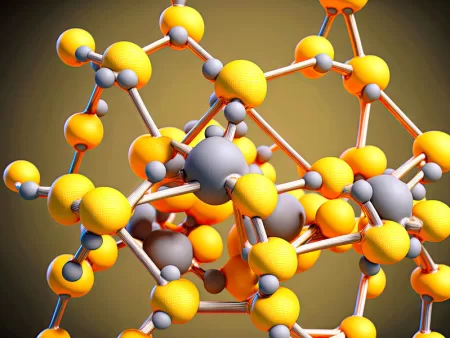
Hormonal medication scares many people because they fear gaining weight. What is less known is that hormone levels naturally affect our body mass and metabolism every day, because hormones are always present in our bodies. Moreover, one needs good hormone health to shed some pounds. In this resource, we discuss in detail the connection between hormones and weight loss, explain in detail how it works, and give tips for maintaining your desired hormone and weight balance.
What are Hormones
The body uses hormones as messengers, making them essential chemicals. They are released directly into the blood by various glands of the endocrine system and control organs and tissues, maintaining vital physiological activities of the organism.
Hormones Role in Weight Loss
Why do you need to regulate hormones to lose weight? Firstly, the endocrine system is in charge of metabolism—the entirety of chemical reactions in the cells that convert food into energy, process nutrients for tissue growth and development, eliminate wastes, and generally sustain life in the body. In the wider sense, metabolism includes all chemical reactions that occur in the living body.
This implies that hormones regulate a variety of bodily processes, including building muscle mass, metabolizing fat, and digesting food.
Second, hormones influence our level of hunger and appetite. An imbalance in hormones can easily result in overeating.
Let us look at some examples.
Insulin
Insulin is made by the pancreas. This hormone moves glucose from the blood into the cells to give them energy to function. When the cells do not respond to insulin as they should, it is called insulin resistance. Glucose does not go into the cells to give them energy and accumulates in the blood. The body perceives it as a surplus and stores it as fat.
This disorder is the cause of type 2 diabetes and is directly linked to obesity. Insulin resistance is thus more likely to develop in obese people.
Leptin
The hormone leptin is in charge of making you feel sated. It suppresses appetite. With low leptin levels, a person will feel hungry even after a meal, which can cause overeating. Another possible disorder is leptin resistance when the body does not react properly to normal leptin levels. It is associated with obesity, chronic inflammation, and high levels of certain fats in the blood.
Ghrelin
Ghrelin has an opposite role. It tells the brain that you need food, making you hungry. The clinical research suggests that people who have obesity have a higher sensitivity to ghrelin, and, thus, increased appetite.
Normally, ghrelin concentration is elevated when the person has an empty stomach. This is why it is better to balance your nutrition for weight control than starve yourself—starvation will simply trigger hormone imbalance and overeating.
Estrogen
Estrogen is mostly known as one of the female sex hormones. Yes, it controls reproductive systems in the AFAB people but the AMAB population has it too. Besides sexual and reproductive functions, estrogen affects the skin, brain, muscular-skeletal system, breasts, and cardiovascular system (heart and blood vessels).
The hormone promotes fat accumulation because healthy amounts of fat promote reproductive function. Normally it does not cause weight gain. However, in the event of an imbalance when estrogen levels are too high or too low (like during menopause), weight gain is one of the main symptoms.
Cortisol
Cortisol is the notorious stress hormone. It is released as a normal reaction to stress and it serves to protect us in perilous circumstances. Abdominal fat accumulation is facilitated by cortisol. Because of this, persistently elevated cortisol levels have been linked to obesity and the inhibition of weight loss.
Testosterone
Testosterone is mainly addressed as a male sex hormone, although it is present in female bodies as well. Just like estrogen, it carries many other functions besides reproductive. Normal testosterone levels are necessary to burn fat properly and gain lean muscle mass.
Obesity may be an indirect sign of testosterone deficiency, especially in AMAB patients. Moreover, patients with excess weight are more likely to develop TD.
Hormonal Imbalance and Weight Gain
Let us summarize the most common mechanisms with which hormones affect weight:
- increase appetite;
- decrease the feeling of saturation;
- promote fat storage;
- inhibit calorie burning;
- nutrients are declined and stored as fat.
If the person maintains a balanced diet and exercises but their weight is higher than healthy, they may need to check their hormonal levels for weight loss.
How to Test Hormonal Levels
The doctor may order blood or urine tests to determine the hormone level in the body.
Tips for Hormonal Balance
If you are a healthy person, you should not meddle with hormonal weight loss. Hormonal imbalance can lead to undesired and even dangerous consequences. It is better and safer to aim at maintaining a wholesome lifestyle and healthy hormone levels.
Physical activity
While exercising burns calories by itself, it also has a range of effects on your endocrine system:
- lessens insulin resistance;
- lessens leptin levels;
- lessens cortisol levels;
- promotes better hormone regulation, particularly for estrogen.
Sleep and stress management
Chronic sleep deprivation and low sleep quality are associated with elevated cortisol and inflammation. Try to get 8 to 9 hours of sleep daily and maintain proper sleep hygiene:
- Go to bed at night and wake up in the morning at the same time. People like to oversleep during weekends but it is more likely to throw you off schedule.
- Maintain a comfortable temperature in your sleeping room, keep it dark, quiet, and relaxing.
- Ensure that there is always fresh air in your bedroom.
- Avoid using gadgets, such as TV, smartphones, tablets, and laptops, before sleep. Better to remove them from your bedroom.
- Avoid heavy meals and caffeine close to your bedtime. If you take stimulating medications, take them in the first half of the day.
Stress management is important because chronic stress can trigger overeating and permanently spike your cortisol levels. You can implement any technique or method that suits your way of life or combine them to reduce stress:
- physical activity;
- therapy;
- selfcare;
- meditation;
- other relaxation techiques;
- art, etc.
Dietary Changes to Balance Hormones
Your nutrition should be balanced to provide all the necessary nutrients and energy without harmful excesses. Some products are also more healthy than others.
Reduce sugar and refined carbs
Refined carbs and sugars can negatively affect your cortisol levels. Excessive sugar intake will also disrupt your insulin levels and lower insulin sensitivity. Additionally, these products generally have a poor ratio of calories and nutrients.
Healthy fats
Increasing healthy fats and decreasing trans fats in your diet promotes insulin sensitivity.
Increase fiber and protein
High-fiber foods are good for your gut health which plays an important role in digestion and metabolism. Moreover, your gut produces a hormone called glucagon-like peptide-1 (GLP-1) that is necessary to maintain stable levels of blood sugar and make you feel full.
Implementation of high-quality proteins into your diet helps increase GLP-1 levels.
Hormonal Medications
If hormonal imbalance is caused by a functional disorder, the person may need medication to eliminate the cause of the problem and maintain healthy hormone levels. The kind of medication depends on the issue and its origin. For instance, in the event of age-related testosterone deficiency, hormone-replacing therapy may be in order.
While hormonal medications are usually prescription-only we remind you to never try and take any without a doctor’s prescription as this may cause severe harm to your health when uncontrolled by a licensed medical professional.
Summary
Hormones play a direct role in controlling weight. Weight gain may occur as a result of endocrine disorders. Regular exercise and a balanced diet are the best ways to maintain normal hormone levels and body mass for an individual in good general health.
FAQ
You should not take hormones for weight loss specifically. It can cause an imbalance and lead to various disorders and long-term health issues. Hormonal therapy can only be prescribed by a doctor if there is an ongoing health condition.
Balanced hormones ensure proper fat burning rate and normal appetite levels, which aids in weight loss and helps maintain a healthy BMI.
It depends on many factors and circumstances. For an obese person, losing weight helps to become healthier and achieve more balanced hormone levels. For a healthy or underweight person, losing weight can have negative effects of its own
Do not try to balance your hormones by yourself. If you are worried that you have a hormonal health issue, talk to your doctor. They will run necessary tests, determine the cause of the problem, and offer you the most safe and effective way to overcome it. It may be the implementation of simple changes in your lifestyle, medication, etc.






